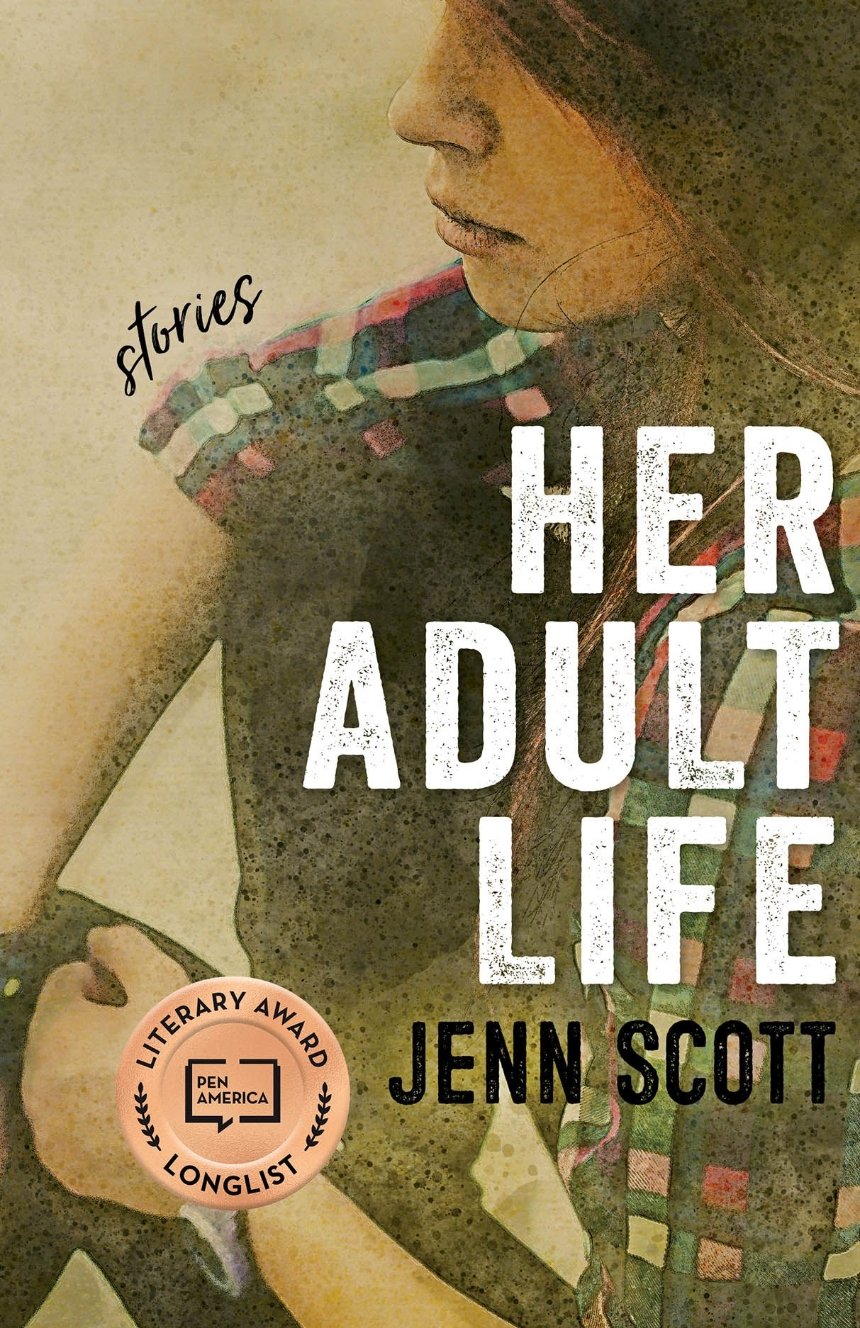Nicola Mason, Editor of Acre Books, interviews Jenn Scott, author of Her Adult Life
Nicola Mason: Some might characterize the stories in Her Adult Life as grim, yet I find them hopeful, largely because characters who are trapped, either by mindset or circumstance or both, rebel in some way. Do you see your stories as hopeful?
Jenn Scott: Full disclosure: I tend to lean toward the grim. Superficially, I would say most of these stories don’t appear hopeful, though “Myths of the Body” has more of that quality, and the narrator of “American Silk” has the luxury of being hopeful simply because of her circumstances. She won’t have to spend her life working in a factory. She’ll go to college and forget that summer ever happened, except for maybe when she’s drunk and telling stories about it. She’s lucky, and with luck comes the luxury of hope. Most of the time, though, I find the characters entangled in their ability, or inability, to see things properly re themselves and their behavior. I tend to leave them in the moment of decision: either they’ll act on hope, or they’ll choose to ignore it. So, yes, I guess they’re hopeful in a touch-and-go way. Like when you pull the Band-Aid off and you hope it won’t rip all your hair out, or when you jump off the high dive for the first time and hope not to drown. It’s a fraught sort of hope, but fraught hope is still hope.
NM: In the Kirkus review of the book, I was a bit surprised that the word violence was used. I suspect this is a reference to the murders in a couple of stories that are reported but not witnessed, but it made me to ponder the emotional violence people wreak on each other all the time, every day—and that shapes us whether we want it to or not. I think that kind of violence is amply and wrenchingly apparent in these stories. Can you speak to this idea?


JS: Funny, I felt surprised by the use of the word violence as well, until I considered it and realized how immune—or maybe, acclimated—I am to the violence in my own stories. The obvious violence is there: bludgeoning with machete, or a man throwing pieces of his ex-girlfriend’s body into the Susquehanna River. But there is, as you say, quite a bit of emotional, more subversive, violence that could easily get overlooked in light of the other. Antonio in “Paradiso nel Frigorifero” is utterly inappropriate with Hannah, who is, as she says, young enough to be his daughter, and even the vegetables are little bullies to her. Those vegetables are pretty much like the meanest girls in every high school. Rodney torments Deb in “American Silk” in his quiet, damning way. There’s also an abundance of lackluster mothering. Frequently daughters are asking for help in their roundabout ways, and the mothers either aren’t hearing them or are choosing not to hear them. Another surprise for me in the Kirkus review was the use of the word abuser regarding “Monsieur.” Yes, he’s eccentric and inappropriate—certainly, he shouldn’t be showing teenagers sex scenes in films and drinking Bordeaux out of thermoses—but he’s never cruel to Belma. If anything, he’s actually in tune with Belma’s sadness. He acknowledges her darkness, and he tells her that she will survive. He alone addresses it when no one else does.
NM: I know you have a favorite story in the book (“Myths of the Body”), but do you have a favorite passage? If so, what sets it apart for you?
JS: If I have a favorite passage, it might be the final one in “Care”:
“I could have been a person like that,” Hayes says.
“You’re a person like this,” she says, and she kisses Hayes right below the edge of his cheekbone. He has a beautiful cheek, smooth, which he tilts towards her. They meet in the middle, lips and cheek, like the perfect crease of a folded page. “We’re people like this,” she says, even while hoping that someone, watching them, could misread them for something entirely different than who and what they are. In this moment, they are willing. They are not impervious to care. They are, neither of them, afraid of tenderness. They are not afraid to succumb, just succumb.
Why do I like this passage? I think because it speaks to that idea of hope mentioned earlier: that despite these characters’ fears and seemingly broken selves, despite their hesitancies and anxieties and baggage, there’s still the possibility of being seen as not fearful, not broken. There’s hope of being loved and of loving. They’re not, at this juncture, cut off from it forever.
